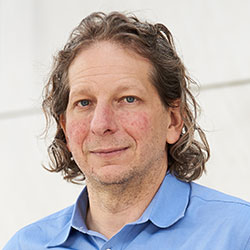
About
Josh Tenenbaum is Professor of Computational Cognitive Science in the Department of Brain and Cognitive Sciences at MIT, a principal investigator at MIT's Computer Science and Artificial Intelligence Laboratory (CSAIL), and a thrust leader in the Center for Brains, Minds and Machines (CBMM). His research centers on perception, learning, and common-sense reasoning in humans and machines, with the twin goals of better understanding human intelligence in computational terms and building more human-like intelligence in machines. The machine learning and artificial intelligence algorithms developed by his group are currently used by hundreds of other science and engineering groups around the world.
Tenenbaum received his PhD from MIT in 1999, and was an Assistant Professor at Stanford University from 1999 to 2002 before returning to MIT. His papers have received awards at the Cognitive Science (CogSci), Computer Vision and Pattern Recognition (CVPR), Neural Information Processing Systems (NIPS), and Uncertainty in Artificial Intelligence (UAI) conferences, the International Conference on Learning and Development (ICDL) and the International Joint Conference on Artificial Intelligence (IJCAI). He has given invited keynote talks at all of the major machine learning and artificial conferences, as well as the main meetings of the Cognitive Science Society, the Cognitive Development Society, the Society for Mathematical Psychology, and held distinguished lectureships at Stanford University, the University of Amsterdam, McGill University, the University of Pennsylvania, the University of California, San Diego, and the University of Arizona. He is the recipient of the Early Investigator Award from the Society of Experimental Psychologists, the Distinguished Scientific Award for Early Career Contribution to Psychology from the American Psychological Association, and the Troland Research Award from the National Academy of Sciences, and is a fellow of the Society of Experimental Psychologists and the Cognitive Science Society.
Research
We study the computational basis of human learning and inference. Through a combination of mathematical modeling, computer simulation, and behavioral experiments, we try to uncover the logic behind our everyday inductive leaps: constructing perceptual representations, separating “style” and “content” in perception, learning concepts and words, judging similarity or representativeness, inferring causal connections, noticing coincidences, predicting the future.
We approach these topics with a range of empirical methods — primarily, behavioral testing of adults, children, and machines — and formal tools — drawn chiefly from Bayesian statistics and probability theory, but also from geometry, graph theory, and linear algebra. Our work is driven by the complementary goals of trying to achieve a better understanding of human learning in computational terms and trying to build computational systems that come closer to the capacities of human learners.
Teaching
9.66J Computational Cognitive Science
9.012 Cognitive Science
Publications
Schulz E., Tenenbaum J.B., Reshef D.N., Speekenbrink M., Gershman, S.J.: Assessing the perceived predictability of functions (pdf) (bibtex) Proceedings of the 37th Annual Conference of the Cognitive Science Society. 2015
Jara-Ettinger J., Gweon H., Tenenbaum J.B., Schulz E.: Children’s understanding of the costs and rewards underlying rational action (web) (bibtex) Cognition 2015
S.J. Gershman, J.B. Tenenbaum, F. Jaekel: Discovering hierarchical motion structure (pdf) (bibtex) Vision Research 2015
Max Kleiman-Weiner, Tobias Gerstenberg, Sydney Levine, Joshua B. Tenebaum: Inference of intention and permissibility in moral decision making (pdf) (bibtex) Proceedings of the 37th Annual Conference of the Cognitive Science Society 2015

